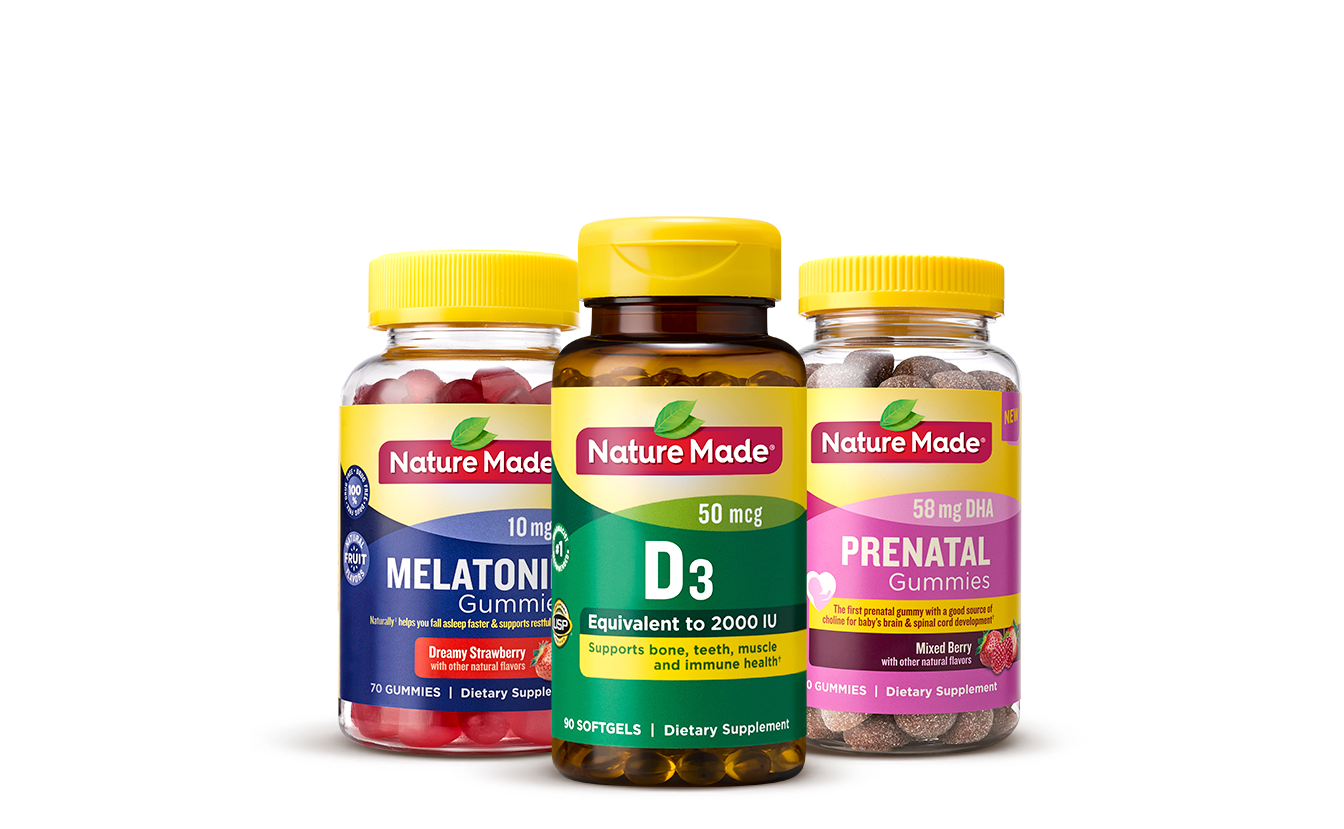Many people focus on the dosage of fish oil to take, like 1000 mg or 1200 mg, but it is the omega-3s that matter. This is where the benefits of fish oil are found. The two types of omega-3 fatty acids to focus on are EPA and DHA. These omega-3s are naturally found in oily fish like salmon, halibut, sardines and anchovies, and are the very reason why fish oil supplements have received such high praise.
EPA and DHA: What’s the Catch?
A regular intake of EPA and DHA can play a positive role in your health. When made available to the body, EPA and DHA are incorporated into cell membranes (such as heart cells) and help support flexible cell membranes.† Scientists continue to add to the extensive amount of research on EPA and DHA.
How Much EPA and DHA Do I Need?
Respected health care organizations proposed intake recommendations for oily fish of two servings per week for healthy adults, which equates to approximately a daily total of 500 milligrams (mg) EPA and DHA.‡ The recommendation encourages adults already with or at-risk of developing cardiovascular disease to talk to their primary healthcare professional about supplementing with amounts greater than 500 mg of EPA and DHA per day. Supportive but not conclusive research shows that consumption of EPA and DHA omega-3 fatty acids may reduce the risk of coronary heart disease.
While fish for dinner is one way to get EPA and DHA, most people don’t eat the suggested two to three servings of oily fish per week to reap the benefits of omega-3s. What’s more, there are extremely few food sources, aside from fish, that naturally provide EPA and DHA. With all the benefits that can come from fish oil, it’s no surprise that these supplements are increasing in popularity.
What Should I Look for in a Fish Oil/Omega-3 Supplement?
First, always remember that it’s the omega-3s that count. When making your purchase, be sure to determine the amount of omega-3s per serving. Many doctors often recommend 1000 to 1200 mg of fish oil because that amount of fish oil contains the total amount of omega-3s the doctor wants you to consume. 1000 mg or 1200 mg of fish oil doesn’t equal 1000 or 1200 mg of omega-3s. A standard 1000 mg fish oil softgel provides around 300 mg of omega-3s (and even less of the important EPA and DHA), and to meet the 500 mg EPA and DHA recommendation, a minimum of two softgels would be necessary. Make sure to read the “Supplement Facts” label to determine the amount of EPA and DHA in a fish oil/omega-3 supplement.
Second, quality matters. It is important to purchase fish oil from a reputable manufacturer that follows Good Manufacturing Practices (GMPs) and takes the necessary steps to purify the oil. In choosing a brand like Nature Made®, the #1 Pharmacist Recommended Omega-3/Fish Oil Brand*, you can rest assured knowing Nature Made has a strong commitment to making quality supplements so you can experience the benefits of fish oil.
Nature Made® Ultra Omega-3 Supplement from Fish Oil
Nature Made Ultra Omega-3 is a unique formula that provides our highest strength dose of EPA and DHA in just one softgel compared to less concentrated fish oil softgels – nearly 3 times the amount. Each softgel provides a total of 935 mg of EPA and DHA.



